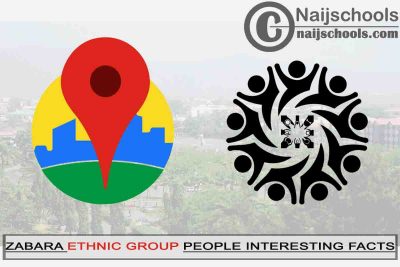Discover 13 Interesting facts about the Zabara Ethnic people in Nigeria, including their rich culture, traditions, and unique way of life. Learn about their history, language, and contributions to Nigerian society.

Nigeria is a diverse country with over 250 ethnic groups, each with its unique customs, languages, and traditions. Also, among these groups, the Zabara Ethnic Group stands out with a rich history and vibrant cultural heritage.
However, in this article, we will delve into 13 interesting facts about the People of the Zabara Ethnic Group in Nigeria. From their origins to their contributions to the nation, we’ll explore the essence of this remarkable community.
13 Interesting Facts About the People of Zabara Ethnic Group in Nigeria
The people of the Zabara Ethnic Group have some interesting facts about them and these facts would be shared with you in this post.
1. Origins of the Zabara Ethnic Group is one of the Interesting Facts About the People of Zabara Ethnic Group in Nigeria
The Zabara people trace their ancestry back to ancient times, and their roots can be found in the northern regions of Nigeria. Also, according to oral traditions, their ancestors were skilled warriors who migrated from a distant land and settled in the present-day Zabara region.
2. Unique Language and Dialects
The Zabara Ethnic Group has a distinct language, which is characterized by its unique tonal variations and rich vocabulary. However, though related to other languages in the region, Zabara’s dialects set it apart, signifying the group’s cultural identity and unity.
3. Traditional Festivals and Celebrations is one of the Interesting Facts About the People of Zabara Ethnic Group in Nigeria
Festivals play a crucial role in the Zabara culture, bringing the community together to celebrate their history and heritage. Also, the “Kwagh-Hir” festival, for instance, is a vibrant display of dance, music, and storytelling, depicting their journey from ancient times to the present.
4. Tranditional Dresssing
The traditional attire of the Zabara people showcases their exquisite craftsmanship and artistry. Also, colourful fabrics and intricate beadwork adorn their garments, reflecting their aesthetic sensibility and cultural pride.
5. Zabara Art and Crafts is one of the Interesting Facts About the People of Zabara Ethnic Group in Nigeria
Art and crafts are deeply embedded in the Zabara culture. Although skilled artisans create beautiful pottery, woven baskets, and intricate wood carvings, which serve both utilitarian and decorative purposes.
6. Strong Family and Community Ties
The Zabara Ethnic Group places great emphasis on family and community bonds. Extended families often live together, fostering a sense of unity and mutual support among relatives.
7. Farming and Agriculture is one of the Interesting Facts About the People of Zabara Ethnic Group in Nigeria
Agriculture forms the backbone of the Zabara economy. They are adept farmers, cultivating crops such as yams, millet, and sorghum, and rearing livestock, which sustains their communities.
8. Spiritual Beliefs and Practices
The Zabara people have a deep spiritual connection with nature and ancestral spirits. Traditional religious practices are still significant, and rituals are performed to seek blessings and protection.
9. Folklore and Mythology is one of the Interesting Facts About the People of Zabara Ethnic Group in Nigeria
Folklore and mythology form an integral part of the Zabara’s oral tradition. These captivating stories passed down through generations, offering insights into their history and worldview.
10. Unique Architectural Style
Zabara villages exhibit a unique architectural style, characterized by earthen structures and thatched roofs. This traditional design blends seamlessly with the surrounding landscape.
11. Music and Dance is one of the Interesting Facts About the People of Zabara Ethnic Group in Nigeria
Music and dance are central to Zabara culture. Vibrant drumming, melodious flutes, and rhythmic dances are expressions of joy, sorrow, and celebration, adding colour to their lives.
12. Contributions to Nigerian Culture
The Zabara Ethnic Group has made significant contributions to Nigerian culture, particularly in the fields of music, art, and crafts. Their creativity and talent have enriched the nation’s cultural heritage.
13. Modern Challenges and Preservation Efforts is one of the Interesting Facts About the People of Zabara Ethnic Group in Nigeria
In the face of modernization and urbanization, the Zabara Ethnic Group strives to preserve their unique cultural identity. Also, various organizations and individuals are working to safeguard their traditions for future generations.
Conclusion
Finally, in Nigeria, the Zabara Ethnic Group presents a complex tapestry of history, culture, and traditions. Also, their own language, art, and music, combined with a strong feeling of community, distinguish them as a really remarkable ethnic group.
However, as they face modern-day challenges, the Zabara people’s desire to preserve their legacy ensures that they will continue to enrich Nigeria’s unique cultural environment.
Also, Check Out;
- 13 Interesting Facts About the People of Shan-Shan Ethnic Group in Nigeria
- 13 Interesting Facts About the People of Shangawa Ethnic Group in Nigeria
- 13 Interesting Facts About the People of Oworo Ethnic Group in Nigeria
